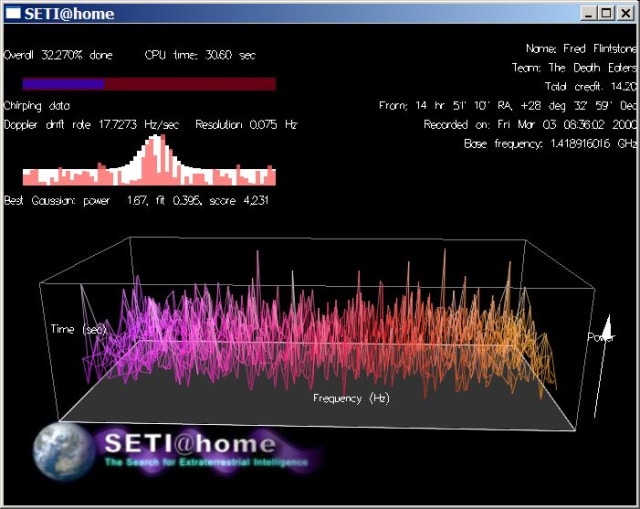The search for alien life is over... for now

At the end of this month, SETI@home is closing down after two decades of alien hunting.
The Search for Extraterrestrial Intelligence was an early example of distributed computing, using spare processing cycles from computers around the world to analyze signals from the Arecibo radio telescope in Puerto Rico and the Green Bank telescope in West Virginia. Now the project has gathered enough data and is going into hibernation, rendering the famous screensaver useless.
This, sadly, does not mean that SETI@home has managed to locate extraterrestrial intelligence. The project has been able to gather a colossal amount of data, and now the time has come to catch up with analyzing the backlog that has built up.
The hibernation was announced in a post on the SETI@home website:
On March 31, the volunteer computing part of SETI@home will stop distributing work and will go into hibernation.
We're doing this for two reasons:
1) Scientifically, we're at the point of diminishing returns; basically, we've analyzed all the data we need for now.
2) It's a lot of work for us to manage the distributed processing of data. We need to focus on completing the back-end analysis of the results we already have, and writing this up in a scientific journal paper.
However, SETI@home is not disappearing. The web site and the message boards will continue to operate. We hope that other UC Berkeley astronomers will find uses for the huge computing capabilities of SETI@home for SETI or related areas like cosmology and pulsar research. If this happens, SETI@home will start distributing work again. We'll keep you posted about this.
If you're currently running SETI@home on your computer, we encourage you to attach to other BOINC-based projects as well. Or use Science United and sign up to do astronomy. You can stay attached to SETI@home, of course, but you won't get any jobs until we find new applications.
We're extremely grateful to all of our volunteers for supporting us in many ways during the past 20 years. Without you there would be no SETI@home. We're excited to finish up our original science project, and we look forward to what comes next.
But this is not necessary the end of the story. UC Berkeley SETI tweeted:
Data volumes from projects like @brkthroughprize Listen are huge, requiring us to bring computing resources to the data rather than the other way round. But we still seek to engage the world in helping to develop algorithms and analyze data: https://t.co/tvjGqZdd2t pic.twitter.com/SrvKx10GYj
— UC Berkeley SETI (@BerkeleySETI) March 3, 2020
It added: "Stay tuned …. We have some exciting new ways for the public to contribute to SETI@Berkeley that we will announce in the near future".
